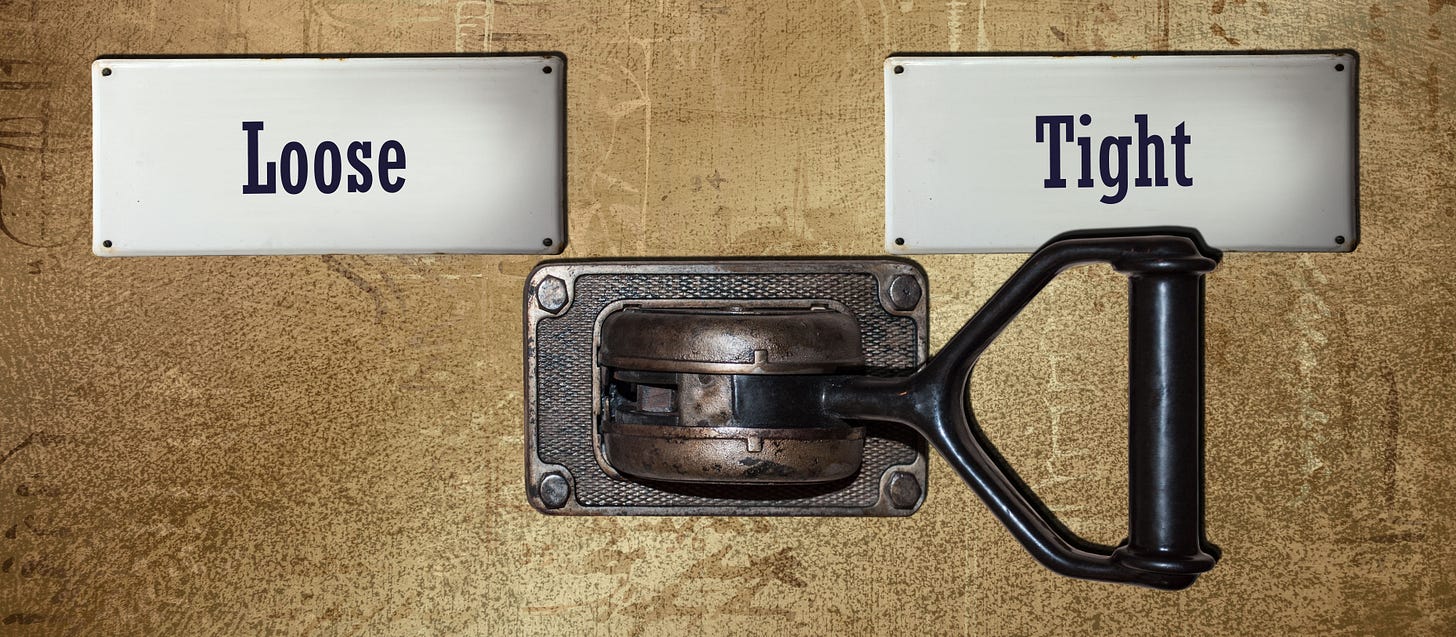E-Pluribus | March 30, 2023
The tyranny of accreditation; righty-tighty, lefty-loosey, political edition; and a mob shout down, down under.
A round-up of the latest and best writing and musings on the rise of illiberalism in the public discourse:
Robert Manzer: The Arbitrary Monopoly Crushing Higher Education
Writing at National Review, Robert Manzer exposes one of the less visible layers in the left-leaning monopoly over higher education: accreditation. Manzer writes that the cost of losing accreditation coerces universities and colleges into instituting policies that have more to do with political, social and cultural issues than educational ones.
More recently, however, the intimidation game [by university accreditors] worsened. In the mid 2010s, accreditors began to remake universities into social-justice organizations focused on “closing equity gaps.” Seeking to end once and for all the disparate educational outcomes of racial and ethnic groups, accreditors sought to redefine “quality” as “equity.” Under the euphemism of “supporting all students,” their new standards and reporting requirements were designed to increase their leverage over campuses. Faculty were again the main target, but this time the accreditors wouldn’t be satisfied with embellished presentations. They sought to prioritize “equity-mindedness” in all hiring, tenure, and promotion decisions and to compel campuses to prioritize “inclusion” over free and open campus debate. While some faculty members aspire to the revolutionary vanguard, most want to teach and research, and they want to hire and promote colleagues who excel at teaching and research. The accreditors want to replace this faculty with one that shares their priorities. To date, the Western Association of Schools and Colleges Senior Colleges and Universities Commission has gone furthest with recent changes to its Standards 1, 3, and 4 and a new “Equity and Inclusion Guide” that make it clear that equity should pervade the entire institution.
Read the whole thing.
Thomas B. Edsall: Do You Live in a ‘Tight’ State or a ‘Loose’ One? Turns Out It Matters Quite a Bit.
Tribalism and polarization, most observers agree, have been on the rise in the United States. Thomas Edsall at the New York Times writes that a novel approach developed about a decade ago can provide some insights into how to understand our differences and therefore what might be done to overcome them.
In 2014, Michele J. Gelfand, a professor of psychology at the Stanford Graduate School of Business formerly at the University of Maryland, and Jesse R. Harrington, then a Ph.D. candidate, conducted a study designed to rank the 50 states on a scale of “tightness” and “looseness.”
Appropriately titled “Tightness-Looseness Across the 50 United States,” the study calculated a catalog of measures for each state, including the incidence of natural disasters, disease prevalence, residents’ levels of openness and conscientiousness, drug and alcohol use, homelessness and incarceration rates.
[ . . . ]
There are significantly different costs and benefits to tight and loose communities. In her book, Gelfand writes that tightness encourages conscientiousness, social order and self-control on the plus side, along with close-mindedness, conventional thinking and cultural inertia on the minus side. Looseness, Gelfand posits, fosters tolerance, creativity and adaptability, along with such liabilities as social disorder, a lack of coordination and impulsive behavior.
[ . . . ]
Underlying these differences are competing sets of liberal and conservative moral priorities, with liberals placing more stress than conservatives on caring, kindness, fairness and rights (known among scholars as individualizing values) while conservatives focus more on loyalty, hierarchy, deference to authority, sanctity and a higher standard of disgust (known as binding values.)
Read it all here.
Quillette Editorial Board: An Auckland Mob Shut Down a Women’s Rights Activist—And Proved Her Point
Activists are by nature confrontational and attract like responses, but too often the responses overreach the bounds of civility. Such was the case in New Zealand over the weekend as the Quillette editorial board reports.
British women’s rights activist Kellie-Jay Keen, also known as Posie Parker, is the prototypically impolite gender crit, often engaging in aggressive and confrontational tactics that, at times, have turned her into something of a pariah. Yet by sheer doggedness, Keen now has managed to thoroughly discredit her trans-activist opponents, by rousing them to scenes of misogynistic violence that are even now circulating on social media as viral sensations.
[ . . . ]
In Auckland, an assailant named Eliana Rubashkyn doused Keen with red fluid, later offering the lurid claim that it represented the blood of “our people … I want her to know that her words are blood.” Keen, who’d become understandably terrified by this point, was also surrounded by a baying mob. Her visibly shaken supporters, some of them elderly women, had to be evacuated by police. “The situation here is shameful, Keen later tweeted. “I’m very afraid for the women here. The women hatred is extreme.”
Even Keen’s most pointed (and polite) skeptics within the gender-crit movement would be hard-pressed to disagree. One banner on display at her event read, “These boots stomp TERFs” (the latter term indicating Trans-Exclusionary Radical Feminist, a term of abuse used to indicate contempt for those, such as Parker, who refuse to let biological distinctions be erased in the service of gender identity). A member of the mob was caught on video punching one of Keen’s elderly supporters. Later, a self-described Auckland-based “LGBTQIA+ activist” described being sexually aroused by the fact that Keen was “fearing for her life.”
Read it all.
Around Twitter
Via Thomas Chatterton Williams, some excerpts from a thread quoting an article by two professors at New Lines magazine on the trouble with trying to stamp out racism:
It’s that time of year again, says Alex Morey of the Foundation for Individual Rights & Expression - commencement speaker disinvitation time! It’s a long thread, click to read it all.
And on a final serious note, in the wake of the Nashville school shooting, David French pushes back at the notion that the oft-mocked “thoughts & prayers” is simply an excuse to not act:








